Researchers at the National Cardiovascular Research Center (CNIC), in collaboration with a team of scientists from the Rockefeller University of New York (USA), have shown that treatment with the drug dabigatran, a direct-acting oral anticoagulant, It is capable of delaying the appearance of Alzheimer's in mice.
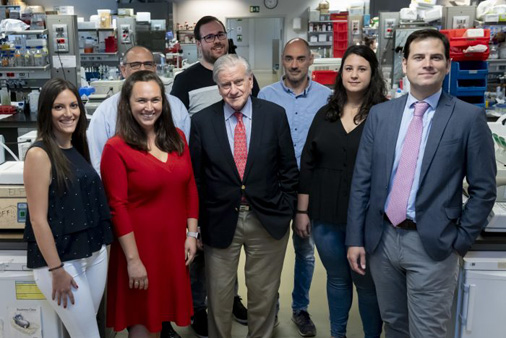
Researchers at the CNIC

CNIC

Rockefeller University
Specifically, according to the results, published in the Journal of the American College of Cardiology, after one year of treatment with dabigatran, the animals did not experience memory loss or decrease in cerebral circulation. This therapy also reduced brain inflammation, vascular damage and reduced amyloid peptide deposits, typical signs of Alzheimer's disease.
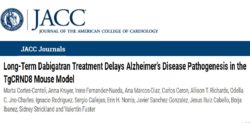
The news of the study in the Journal
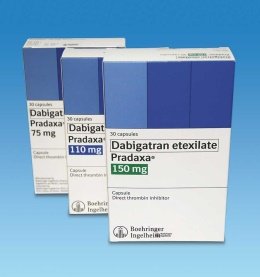
Dabigatran
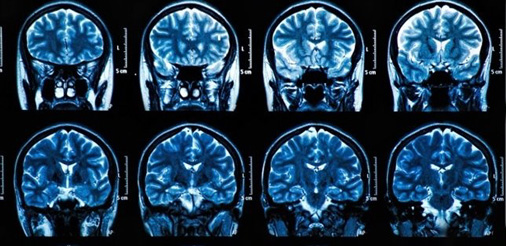
Brain inflammation
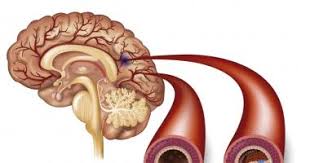
Brain vascular damage
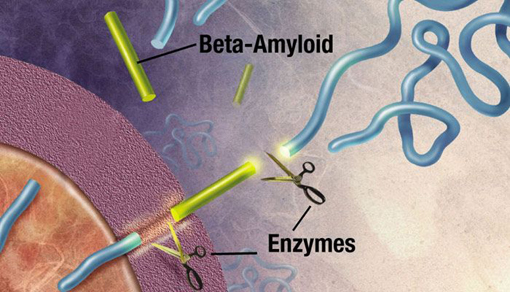
The peptide Beta-Amyloid
In recent years, it has been discovered that this type of dementia, which affects tens of millions of people in the world, is associated with a decrease in cerebral circulation, so that the brain cells do not receive all the necessary nutrients and oxygen and they die.
It is also known that Alzheimer's is a multifactorial disorder with a chronic prothrombotic component. Given this situation, the new study has combined physiological and molecular techniques, to demonstrate that long-term anticoagulation, with this medicine, improves the pathogenesis of Alzheimer's, in a transgenic mouse model.
Specifically, the mice in the study were shown several closed doors and only one open; after one year, the mice treated with Dabigatran remembered the open door, to hide themselves and, however, the mice not treated with this medicine did not remember where the open door was.
Due to the progressive aging of the population, it is estimated that the number of people who will suffer Alzheimer's will triple in 2050, since every three seconds a new case occurs in the world and, unfortunately, the treatments approved to date only temporarily help with memory problems, but they fail to stop or reverse the symptoms.
Dabigatran, thanks to its "high efficacy and fewer side effects" than other classic anticoagulants, is approved for use in different human diseases. "This discovery is an important step forward to transfer our results to clinical practise and thus achieve an effective treatment for Alzheimer's disease", said researcher, Marta Cortés Canteli, from the CNIC and responsible for the study.

Marta Cortés Canteli
Likewise, the general director of the CNIC and one of the main authors of the work, Valentín Fuster, recalled that neurodegenerative diseases are deeply linked to the pathology of the cerebral vessels, so he has stated that the study of the brain-heart nexus, in Neurodegenerative diseases, is the "challenge of the next decade".
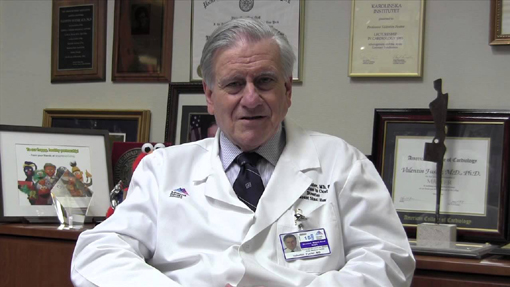
Valentín Fuster
Pending future analysis in humans, the researchers believe that this study suggests that dabigatran could be a possible future treatment to normalise cerebral circulation in Alzheimer's patients.
"To carry out this individualised treatment, it will be necessary to develop a diagnostic tool that identifies those Alzheimer's patients, who have a tendency to coagulate. That is one of the lines of research that we will focus on, in the coming years", Cortés Canteli has settled.
This study began in the US, six years ago, with US funding and has been completed, in Spain, thanks to various national and European grants, that allowed Cortés Canteli to move her research line back to Spain, in 2015.
Well, I hope that Spanish scientists can continue investigating, to finally end Alzheimer's disease and other diseases such as stroke and cancer.
And I also hope that you will like this article.
Until my next post, kind regards,
Luis.
Please click below:
